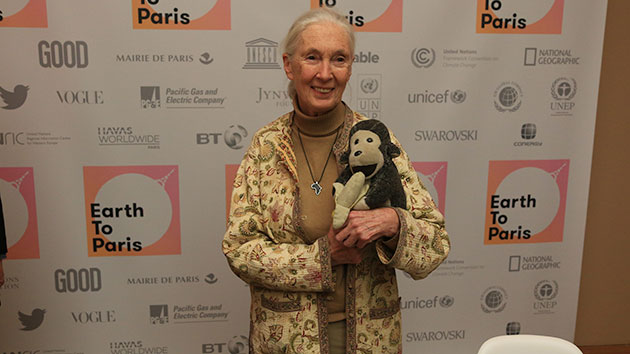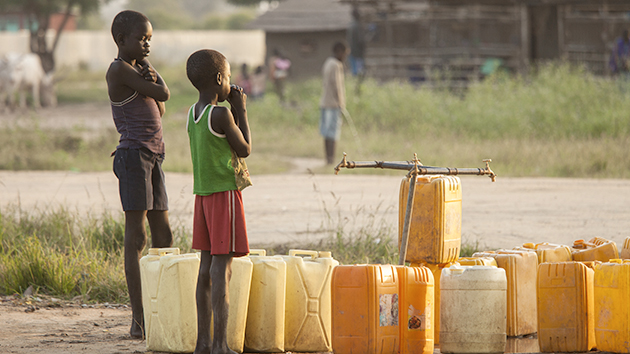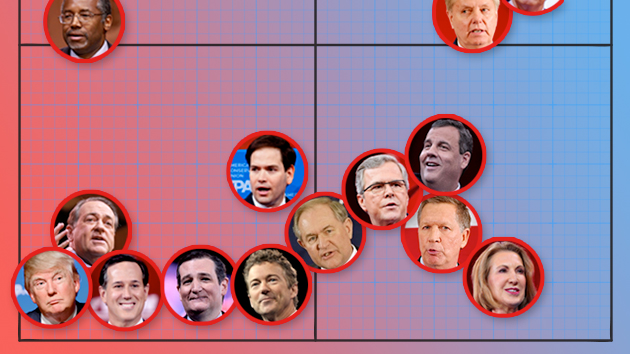California is no stranger to the greenhouse gas emissions that cause climate change. It has the second-highest carbon footprint of any US state (after Texas). But as diplomats from nearly every country on Earth hash through the final details of an international climate change agreement in Paris this week, they’re seeing a very different side of the Golden State.
Gov. Jerry Brown, his predecessor Arnold Schwarzenegger, billionaire environmentalist Tom Steyer, and a host of other Californian political and business leaders are in the French capital this week to tout their state’s success as a carbon-slashing powerhouse. They argue that countries around the world should look to California for guidance on how to reduce greenhouse gas emissions and nurture the clean energy industry—while creating jobs and growing the economy.
“California can be a template of what is successful,” said California State Sen. Kevin de Leon (D-Los Angeles), in a press briefing Monday with Steyer and a dozen clean energy entrepreneurs. “We can export our policies.”
Indeed, the state does have a lot to be proud of. It ranks way down at No. 45 for per-capita carbon emissions. And it was among the first states to set a greenhouse gas reduction target, way back in 2006. That law, signed by Schwarzenegger, called on the state to reduce its emissions to 1990 levels by 2020. In January this year, Brown re-upped with a new set of climate goals that are the most aggressive in the nation. California broke ground on carbon trading markets. And thanks in part to a policy that requires the state’s power companies to get a third of their electricity from renewable energy by 2020, the state routinely ranks No. 1 on clean energy investment and has the most solar power of any state.
And as de Leon pointed out several times, all those green policies don’t seem to have dragged down the state’s economy: Total GDP is rising while emissions per unit of GDP are dropping. Climate-savvy lawmakers did suffer a setback this fall, when pressure from the oil lobby led the legislature to give up on an attempt to cut gasoline consumption in half by 2030.
But that hasn’t stopped Brown and his peers from becoming leading voices here at the beginning of the second week of “COP21,” as the massive climate summit in Paris is known. On Tuesday evening, de Leon led a coalition of US mayors at an event calling for President Barack Obama to bypass Congress and push to get half the country’s power from renewables by 2030. The day before, Brown took the stage at Earth to Paris, an event organized by the UN Foundation at an ornate building in the city center packed with hundreds of scientists, policy wonks, and political leaders who needed a break from the core negotiations. (Secretary of State John Kerry followed shortly afterward.)
“This is an art and a science,” Brown said, of his state’s climate campaign. “You have to push business further than they want to go, but within their capacity to reach it.”
That message was echoed by Tom Steyer, whose political group NextGen Climate plans to spend huge sums of cash to make climate a central theme of the 2016 presidential election.
“The opposition to progressive energy policy around the world always come out as, ‘You can have healthy jobs or a healthy environment, but you can’t have both,'” Steyer said. “But in California, we can walk the walk and talk the talk.”
He also said the next president, if it’s one of the Democratic candidates who aims to continue Obama’s climate legacy (all the Republicans running are committed to overturning it), will need to rally much more support from the American people in order to overcome an obstinate Congress. You can hear more of Steyer’s remarks in the video above.
It remains to be seen whether any of this will make an impression on the real negotiators, huddled in a converted airport in the city’s northern suburbs. Over the next few days, they’ll be poring over hundreds of fine-grain decisions on everything from how often countries will need to revise their climate commitments, to how much wealthy countries like the United States should have to pay to help vulnerable, poorer nations adapt to climate impacts.
We’re on the ground in Paris all week—stay tuned for updates.
Master image: Darren J. Bradley/Shutterstock












